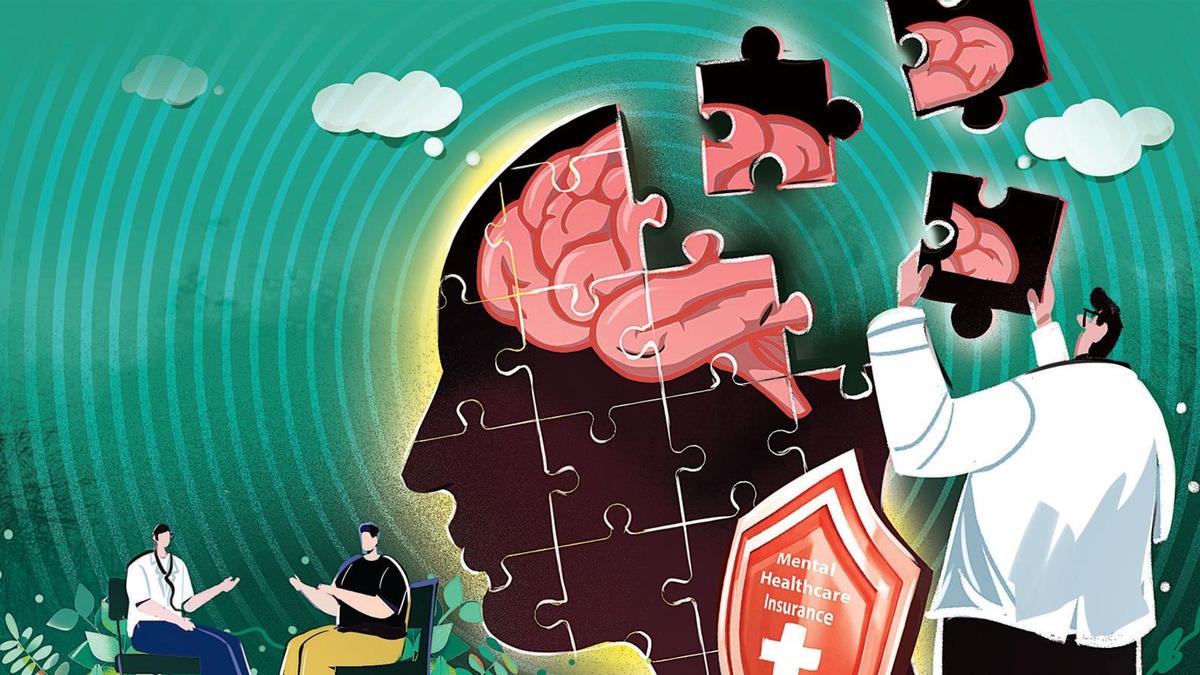Mental Healthcare in India

- 13 Jun 2025
Introduction
Mental health has long been neglected in mainstream healthcare discourse. However, recent developments, especially in the post-pandemic era, have sparked a paradigm shift in both public perception and policy priorities. With the Mental Healthcare Act, 2017 and subsequent directives from the Insurance Regulatory and Development Authority of India (IRDAI), mental health is now legally and practically on par with physical health in India’s insurance ecosystem.
Global and National Context
- According to the World Health Organization (WHO), mental health conditions affect 1 in 5 adults globally, resulting in over $1 trillion in productivity loss annually.
- In India, increased awareness and policy changes have led to mental health coverage being integrated into mainstream health insurance.
Policy Milestones and Insurance Evolution
- Mental Healthcare Act, 2017: A landmark legislation mandating equal treatment of mental and physical illnesses.
- IRDAI Directives: Instructed insurers to include mental illness in their policy coverage.
- Health Insurance Trends:
- Mental health–related claims (for therapy, stress, anxiety medication) have risen by 30–50% over the past 2–3 years.
- Outpatient Department (OPD) benefits now cover therapy, counselling, and psychiatric consultations.
Demographic and Behavioural Trends
1. Young Adults (25–35 years)
- Major drivers of insurance adoption for mental health.
- Key stressors include work-life imbalance, digital overload, and financial pressures.
- Show preference for app-based therapy and digital mental health platforms.
2. Women
- Higher uptake of mental health-inclusive policies.
- Insurance aligned with life-stage challenges (e.g., pregnancy, menopause, caregiving).
- Reflects increased cultural recognition of women’s emotional well-being needs.
3. Urban-Rural Divide
- Tier-1 cities account for over 50% of mental health insurance uptake.
- Better therapy networks, progressive employers, and higher digital literacy.
- Tier-2 cities showing promising growth in awareness and access.
Workplace Shifts
- Growing emphasis on mental wellness programs.
- Initiatives include:
- Stress management workshops
- In-house counsellor access
- Flexible work arrangements
- Indicates an evolving perception of mental health as integral to employee well-being.
Challenges Ahead
- Despite broader coverage, utilisation remains low due to:
- Lack of awareness about existing benefits (e.g., OPD coverage, cashless therapy).
- Social stigma and low mental health literacy.
- Accessibility gaps in rural and semi-urban areas.
Way Forward
- Awareness Campaigns: Promote knowledge of insurance entitlements and available services.
- Capacity Building: Increase mental health professionals and digital outreach platforms.
- School and Workplace Integration: Embed emotional literacy and psychological support in institutions.
- Insurance Product Innovation: Develop simplified, accessible plans tailored to diverse demographic needs.
- Data Collection and Monitoring: Use claim trends to shape targeted mental health interventions.
Conclusion
Mental healthcare in India is at a pivotal moment. The convergence of legal reform, insurance innovation, and shifting public attitudes is laying the foundation for a more inclusive and responsive mental health system. However, inclusion on paper must translate to accessibility in practice. Bridging this gap requires sustained efforts in awareness, education, and empathetic policy implementation.
Mental health is no longer an afterthought — it is an essential pillar of human well-being and economic productivity.
